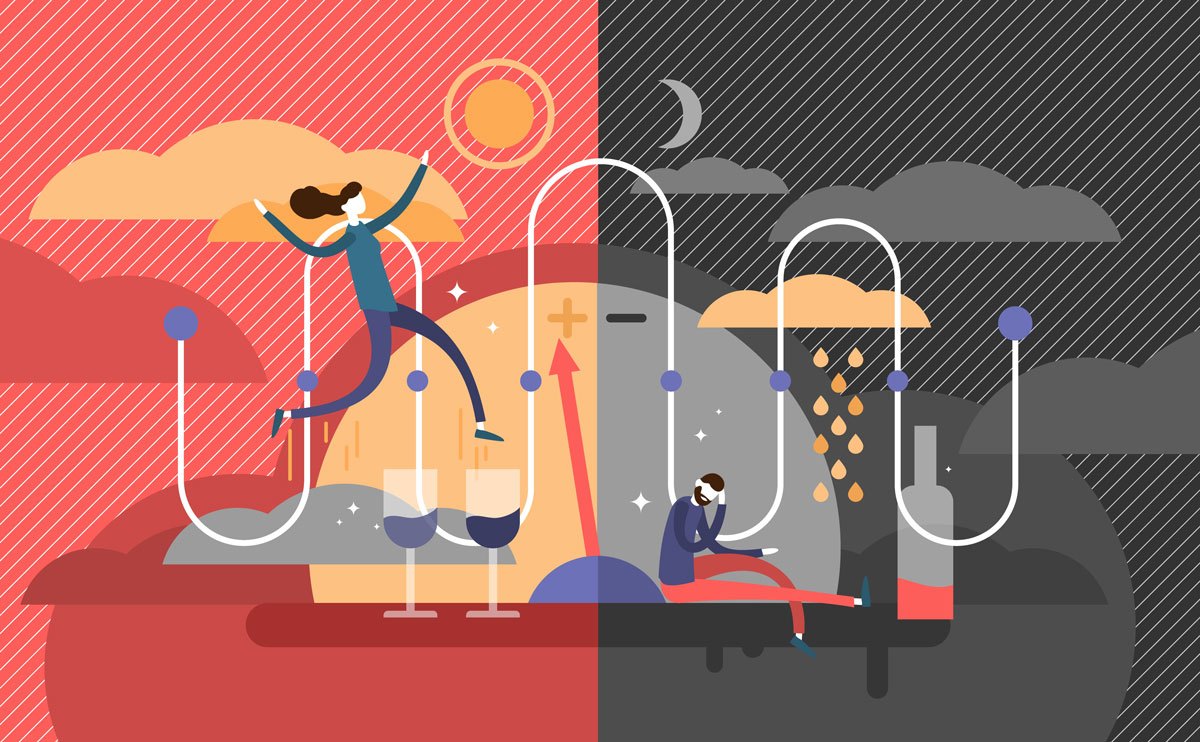Despite a rising awareness of the prevalence of depression in the Middle East, significant social stigma regarding mental health issues remains. A better understanding of depression, and recognising the effectiveness of professional treatment, can help people struggling with this common condition to find relief.
Imagine being in desperate need of help, to the point where your life depends on it, yet unable to open your mouth and cry out for it. If you have ever experienced mental illness, you may know exactly how this feels. The stigma surrounding mental health issues in the Arab world can be incredibly challenging for those trying to live with depression, and does nothing to curb the actual rates of mental health disorders.
Two surveys released in 2019 revealed widespread concern about mental health issues in the Middle East, as well as the barrier that stigma creates in seeking treatment. The Arab Youth Survey reported that while 31% of Arab youth knew someone struggling with a mental health disorder, more than half said that quality mental health care is not easily accessed. This has far-reaching implications for the quality of life of those living with a mental health disorder.
Better understanding of common mental health issues like depression, as well as the range of treatment options available to help people manage them, can help ensure a happier, healthier future for those living with depression.
Understanding Depression
Depression is a medically-recognised mood disorder that causes people to feel sad or emotionally flat, have low energy levels, and lose interest in things that they once enjoyed. While doctors are unsure of the exact causes of depression, it is agreed that it is likely caused by several factors including:
- Genetics
- Brain structure
- Brain chemistry
- Hormones
Depression can be related to other conditions as well, such as bipolar disorder or addiction, and therefore needs to be evaluated by a mental health professional to determine what type of specific treatment is required. It is a chronic but treatable medical condition, like diabetes or asthma, which requires professional care and treatment as well as lifestyle adjustments to best manage symptoms.
Am I Depressed?
This may not be an easy question to answer, particularly if depression is stigmatised. Stigma can result in people downplaying or completely denying their symptoms, or attempting to attribute them to another cause, like blaming someone close to them for making them feel or act a certain way.
If you have been feeling unhappy, angry, or sad most of the time, it is possible that you are struggling with depression. Asking yourself a few key questions can help you further clarify what may be behind your low mood. You can start by considering these points:
- Do I often feel empty, sad or hopeless?
- Do I get easily irritated, or get angry about small things?
- Have I lost interest in activities or hobbies I used to really enjoy?
- Does my energy level feel lower? Am I exhausted most of the time?
- Am I having trouble sleeping, or sleeping too much?
- Are my eating habits different? Has my weight fluctuated?
- Is it hard for me to move past mistakes? Do I often feel guilty or ashamed?
- Am I struggling to focus, concentrate, and find motivation for things?
- Are these feelings affecting my ability to do basic tasks, like take a shower or get to work on time?
- Do I have unexplained health problems, such as back pain or headaches?
- Have I ever had thoughts of self-injury or suicide?
If you answered “yes” to some of these questions, it is important to talk to a mental health professional about what you’re experiencing. Ignoring your symptoms can prolong them and cause them to worsen. A specialist can identify if you are dealing with depression, consider if you have any other co-occurring disorders, and begin the process of treatment.
How Acute Depression Treatment Works
When you begin treatment for depression, you start learning about your disorder and how it impacts you specifically. This is a time where you can begin to safely and fully share and process the feelings you are having, while getting support and guidance from an experienced professional who can help you feel better. Treatment will also help you identify stressors – people, places, events or things that can worsen your condition – and develop specific ways to cope with these.
Treatment for depression is not one-size-fits-all, and involves a variety of modalities such as talk therapy, innovative medical technology, wellness practices, and medication. A mental health specialist will assess your condition and help create a holistic treatment plan that fits your needs.
Alcohol and Depression Treatment
Some people will attempt to self-medicate in order to find relief from their symptoms, turning to alcohol or drugs to try and numb the emotional pain of depression. Unfortunately, once the intoxicating effects of alcohol wear off, anxious and depressed feelings tend to return even more intensely, contributing to a cycle of alcohol abuse.
If you are struggling with depression and alcohol abuse or another substance addiction, your treatment should focus on addressing both co-occurring disorders. This means uncovering the relationship between the disorders, and developing a holistic plan to best manage symptoms. This will strengthen your ability to cope, eliminate your dependency on alcohol, and help you feel better day-to-day.
Bipolar Depression Treatment
Bipolar disorders are characterised by periods of depression, mania or both. Some people living with a bipolar disorder will experience cycling through these states, moving from mania to depression or vice versa. The key differentiation between bipolar depression and clinical depression is the movement between moods that always comes with bipolar depression.
A mental health specialist will be able to identify if you are having mood swings, which can be subtle or more pronounced depending on the type of bipolar disorder, and develop a treatment plan best suited for this condition.
Treatment for Severe Depression
In cases where depression symptoms are severe and not alleviated by psychotherapeutic interventions or medication, a specialist will further analyse your medical history, consider potential side-effects of medications that you are taking, and look for other physical or mental health issues (co-occurring disorders) that could be contributing to the depression.
For some, transcranial magnetic stimulation (TMS) treatment can provide relief for medication-resistant depression. This innovative, non-invasive technology gently stimulates nerve cells in your brain that are involved in mood control, alleviating symptoms of depression.
Best Inpatient Depression Treatment Centres
If you have been struggling with symptoms of depression and want to make steady, concentrated progress to manage your condition, inpatient depression treatment centres are the best option. Residential mental health treatment centres offer a range of treatment options under one roof, meaning you’ll have access to a range of different therapies that can be combined for the most effective solution all in one place.
Inpatient treatment also means that you are completely removed from your home environment and the stressors in it, offering you the space and freedom to focus fully on your needs. There is no shame or stigma, just a community of support who knows how to help.
Residential programmes can range quite a bit in what they offer, so knowing what to look for is critical in identifying what is right for you. The best inpatient depression treatment centres will:
- Be accredited by a national or international body
- Have 24-hour onsite medical care to handle any urgent medical needs
- Have small client numbers to ensure personalised treatment
- Offer holistic treatment, including access to different types of psychotherapy, wellness activities, and medical technology
- Have experienced, certified staff
- Offer services along the entire continuum of care
Coming for a Depression Retreat to The Dawn

The Dawn Wellness Centre and Rehab is a unique residential treatment centre that offers high-quality, confidential mental health and addiction treatment for those looking to change their lives for the better. Our experienced, international staff work with each one of our clients to develop a personalised treatment plan designed to address their specific needs. We specialise in treating depression as well as co-occurring disorders, and are the only residential treatment centre in Asia to offer Transcranial Magnetic Stimulation (TMS) treatment.
Located in the stunning setting of Northern Thailand, The Dawn is internationally accredited by the American Accreditation Commission International (AACI), a widely recognised body overseeing clinical excellence and provision of health care, and accredited nationally by the Thai Ministry of Public Health. As you finally relax amidst lush gardens and resort-style facilities, you will feel a world away from the troubles of home and fully able to focus on your recovery.
Call The Dawn today to learn more about how we can support you and help treat your depression.
Related Posts
 Mental Illness: How We Can Overcome the Stigma as a Society
Mental illness and addiction tend to have a stigma attached, which causes other people to lack compassion. Likewise, the stigma surrounding these conditions can prevent people from seeking treatment. People...
Mental Illness: How We Can Overcome the Stigma as a Society
Mental illness and addiction tend to have a stigma attached, which causes other people to lack compassion. Likewise, the stigma surrounding these conditions can prevent people from seeking treatment. People...
 Knowing the Nuances: Understanding the Differences between ADHD and Bipolar Disorder
When you seek treatment for any mental health condition, the first step is to ensure that you have an accurate diagnosis. For ADHD and bipolar disorder, the presence of some...
Knowing the Nuances: Understanding the Differences between ADHD and Bipolar Disorder
When you seek treatment for any mental health condition, the first step is to ensure that you have an accurate diagnosis. For ADHD and bipolar disorder, the presence of some...
 Are You Thriving or Just Surviving? Living with High-Functioning Bipolar Disorder
Living with high-functioning bipolar disorder can mean that most of your energy is spent on handling intense internal emotions and feelings. However, trying to manage these symptoms on your own...
Are You Thriving or Just Surviving? Living with High-Functioning Bipolar Disorder
Living with high-functioning bipolar disorder can mean that most of your energy is spent on handling intense internal emotions and feelings. However, trying to manage these symptoms on your own...
 Moving between Moods: Understanding the Four Types of Bipolar Disorder
Despite increased awareness of bipolar disorders, the specifics of this mental health condition are still not widely understood. Further understanding of the different manifestations of bipolar disorder can help people...
Moving between Moods: Understanding the Four Types of Bipolar Disorder
Despite increased awareness of bipolar disorders, the specifics of this mental health condition are still not widely understood. Further understanding of the different manifestations of bipolar disorder can help people...





